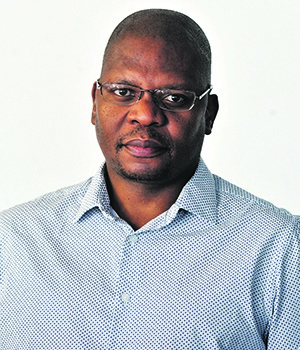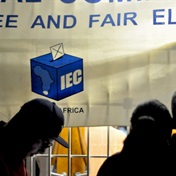
These are testing times when rational people lose their sense of reason. Impossible promises and improbable claims are made and believed. It is also a heart-warming time that sees leaders do affecting things in a bid to endear themselves to voters.
Former president Thabo Mbeki was known to kiss babies during election time – without so much as a frown or a wince while doing so. Once, he even humbled himself by sitting on the floor of a township home, while others sat on chairs or remained standing.
And Western Cape Premier Helen Zille transformed herself into a Motswana makoti, donning a doek and traditional dress while failing dismally to coordinate dance steps.
Heathens suddenly find the urge to go to religious ceremonies so that they can slip in a word or two of electioneering to worshippers.
Election time is also one of belligerence. Forgetting that there will be “a day after”, politicians test the outer bounds of decent engagement and skirt close to incitement. Even the majority party, which is supposed to be the adult in the room, joins in unseemly public brawls. But we accept the venting – because elections, as a central pillar of the best system humanity has devised to manage its affairs, are meant to be robust. There are times, however, when this robustness becomes incendiary.
The traditional leader, who heads a dying regional party, used to be the master of incendiary talk, warning that he would be unable to control his supporters if things did not go his way. Now that he is much older, his penchant for war talk has somewhat dissipated. That honour now belongs to Economic Freedom Fighters (EFF) leader Julius Malema, who seems to lose himself when crowds respond to his militant rhetoric with raucous applause. Malema’s recent utterances about armed insurrection and getting the army to turn on the president have elicited dismay, but it is his attack on the Independent Electoral Commission (IEC) that is more disconcerting.
Speaking at the party’s election manifesto last weekend, Malema did not mince his words about his party’s distrust of the electoral body. He directly accused the commission of rigging the 2014 Gauteng election result. According to Malema, this was not just tampering but outright rigging – to the extent that it affected the overall balance of power in the province. This serious charge, if true, would mean that Gauteng Premier David Makhura has been governing on a stolen mandate for two years – and that, unless he is able to draw another party into a coalition, his administration is illegitimate and he must give up his convoy.
This is not a new accusation. The EFF has been making similar noises since 2014, but refuses to back up its claims, saying it let the matter go in the interests of peace and progress. The several hours’ hiatus in processing Gauteng’s results, during the final counting on May 8 2014, did raise suspicions in many quarters. But in the absence of anyone taking it up officially, it remains juicy gossip.
But now Malema has elevated it to a pre-emptive point of suspicion about the conduct of this year’s local government elections. He contended that the practice of drawing the commission’s temporary staff from Cosatu unions placed it in the hands of the ANC. As these staff members represented the commission in cities and remote areas during that period, this placed the ANC, as Cosatu’s alliance partner, at an advantage.
Again, this is nothing new and it is a concern shared by other opposition parties, which have combined to force the commission to end the practice. And their concerns are not unfounded. Plenty of anecdotal evidence exists of commission workers failing to hide their partisanship.
However, this puts the commission in a bind because public servants, who are mainly in the Cosatu unions, are often the most literate in some communities and hence easy to train for electoral tasks. The challenge is how to make the commission’s customer base – the citizenry and all political parties – have full trust in the sanctity of the system and the impossibility of it being abused by partisan workers. There are still three months to get this right, but it will take hard work and honest talk.
It does not help that questions are being asked at a time when the commission is facing a self-inflicted crisis of credibility. The scandal around its former chairperson, Pansy Tlakula, dragged on forever and the handling of the Tlokwe vote-rigging scandal, during which the commission’s first reaction was one of denial, dented its reputation.
Now Malema has raised the stakes by in effect threatening that his party may not accept the results of an election that is still about three months away. It is an old tactic that opposition parties on our continent and elsewhere employ to prepare their supporters for the rejection of an election outcome. With supporters having been thus primed, this is often followed by violent protests upon the release of an unwelcome result.
Hopefully, this is not what Malema and his commissars are preparing the nation for when they repeatedly project the commission as an instrument of Luthuli House.




 Publications
Publications
 Partners
Partners








